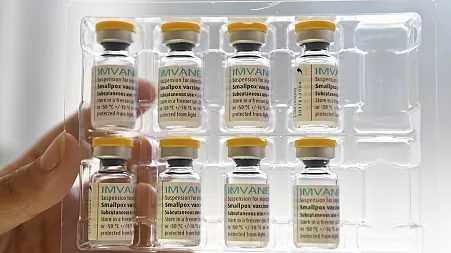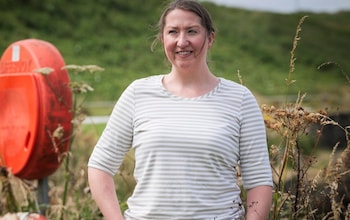Lung cancer is not rare. It was the most common cancer diagnosis in 2022—and the deadliest, according to the International Agency for Research on Cancer.
Despite its frequency, there are still misconceptions about the disease. Dr. Cardinale Smith, chief medical officer for the Tisch Cancer Institute at Mount Sinai in New York City, is quite familiar with them.
"Lung cancer itself is still a highly stigmatized cancer," Smith told Newsweek. "I think that because it is caused by smoking, people tend to think they did it to themselves, or they blame themselves, or perhaps others may look at them unfavorably."
But smoking is an addiction, Smith said, and tobacco was "made to be addicting for a reason." Plus, many of today's patients grew up in an era that normalized cigarettes. The U.S. surgeon general did not declare a link between smoking and cancer until 1964.
More than 200,000 patients in the United States are diagnosed with lung cancer each year, and judgment often prevents them from receiving proper treatment, according to Smith.
"I think giving yourself a little bit of latitude and grace if you are diagnosed with a lung cancer, understanding that this is not your fault, and removing some of that stigma is important," Smith said.
That's not to diminish the link between lung cancer and smoking. The majority of cases—85 percent—can be tied to the practice, according to Smith.
The U.S. Preventive Services Task Force recommends annual lung cancer screening to anyone who: 1) currently smokes or has quit within the last 15 years, 2) is between ages 50 and 80, and 3) has a 20 pack-year or more smoking history. A "pack-year" is an average of one pack of cigarettes per day for one year, so a person with a 20 pack-year history could have smoked either one pack a day for 20 years, or two packs a day for 10 years.
"Never starting [smoking] is the best risk reduction strategy one can take," Smith said, "and quitting smoking is the second."
People can also protect themselves by maintaining good lifestyle habits: eating a healthy diet (more fruits and vegetables, less processed meats) and working out (at least three 30-minute fitness sessions per week).
Some cancers can be passed down family lines, but lung cancer is not one of them, according to Smith.
"Just because a family member may have had lung cancer does not mean that you are at risk for having lung cancer," she said. "And yet it is important to know what your family history is, so it is important to ask."
Finally, people should seek medical attention if they have a cough that worsens over time, are coughing up blood or rust-colored mucus, or have chest pain that worsens when they take a deep breath or laugh. These are all early warning signs that might indicate lung cancer, per Smith.
She emphasized that lung cancer is a "very treatable illness," and physicians who treat the disease are highly specialized. Help is readily available, so sufferers need not feel alone.
"Reach out to your support networks, whomever they may be, and make sure that you see experts in lung cancer care and true believers," Smith encouraged, adding that a lung cancer diagnosis "does not mean a death sentence."
Disclaimer: The copyright of this article belongs to the original author. Reposting this article is solely for the purpose of information dissemination and does not constitute any investment advice. If there is any infringement, please contact us immediately. We will make corrections or deletions as necessary. Thank you.




